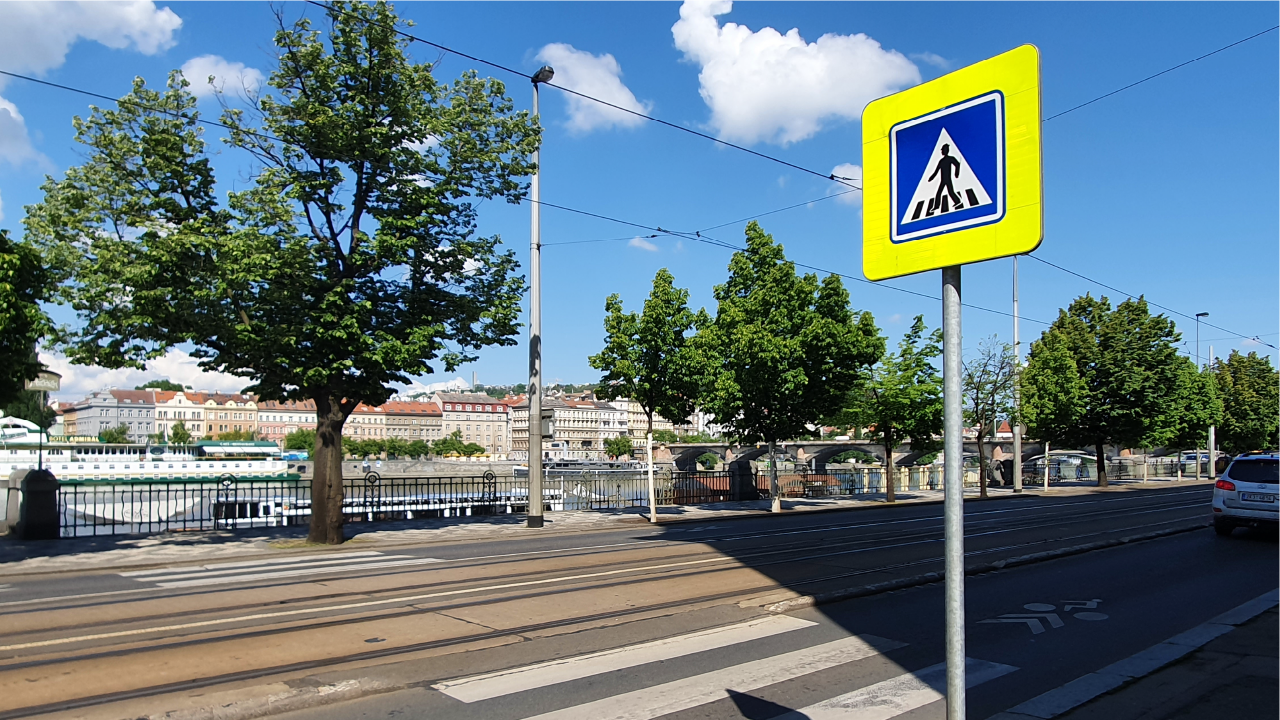
Remote Traffic Sign Management Project, implemented for Prague Capital City by the municipal company Operátor ICT (OICT), which won the Smart Cities for the Future competition in the project for the region category. The main goal of the competition, which is intended not only for cities, but also municipalities and regions, is to promote specific projects and long-term strategies of national Smart City models.
Remote Traffic Sign Management tests IoT technologies that provide information about GPS position, position relative to the Earth's geomagnetic field, or tilt change from baseline for traffic signs that have a sensor installed. "The goal is for the city to have a tool that allows us to monitor the condition of traffic signs without the need for visual inspection. Whether they are portable signs for block cleaning of streets, or signs that are permanent in locations where vandalism or accidents often occur. The project is a great example of how innovative technologies can simplify city administration processes. I am very pleased with the award and it is a confirmation for me that this is the path we want to take in the field of urban innovation" Zdeněk Hřib, the Mayor of the Capital City of Prague explains.
Block cleaning signs are a typical example of the use of this technology. City workers inspect several hundreds of these mobile signs a day, in the process, the inspection vehicles travel approximately 56,000 kilometres a year. If the technology proves successful, the check will only be performed on traffic signs for which the sensor sends information about a change from the original state. "The award of our project confirms that Prague is one of the leaders in the implementation and testing of innovative solutions in the urban environment. Our project is based on the Smart Prague 2030 concept and will help meet the capital's climate commitments. Thanks to the Remote Traffic Sign Management, up to 70 % of the annual distance driven can be saved and the environmental burden on Prague can be reduced by up to 8.45 tons of CO2. There should also be a significant release of the capacity of the staff in charge of control" Matej Šandor, Deputy Chairman of the Board of OICT says.
The total financial savings are estimated at 1 million CZK per year with the technology minimum life expectancy of 5 years. The project also includes testing tags with variable data that can be changed remotely whenever needed. In addition to financial savings and reduction of CO2 emissions, the project also wants to increase the awareness and safety of Prague citizens and road users. "The centre of the modern metropolis is indisputably human, so for a long time we have wanted to profile ourselves as a city that does not make technology for technology, but for people living in the city and the Remote Traffic Sign Management Project is exactly the case" Petr Suška, OICT board member adds.
The third year of the competition awarded projects in a total of ten categories. The expert jury consisted of 27 Smart City experts from the public sector, municipalities, technology leaders in the field of Smart City and academia. Key criteria included feasibility, sustainability, proven savings, data openness and public involvement. The competition is organized by the Smart City Innovations Institute, which aims to support the priority axes of the Smart City / Smart Region ecosystem in the Czech Republic.
The awards ceremony took place today at the Czech Technical University in Prague at the Czech Institute of Informatics, Robotics and Cybernetics (CIIRC). The event is sponsored by the Ministry of Regional Development, the Association of Regions of the Czech Republic, the Union of Towns and Municipalities, the National Centre for Energy Savings, Centre of Marketing Research and Market Analyses of the University of Economics, the Czech Smart City Cluster, the Czech Institute of Informatics, Robotics and Cybernetics, the Prague Innovation Institute and the Modern Energy Union.